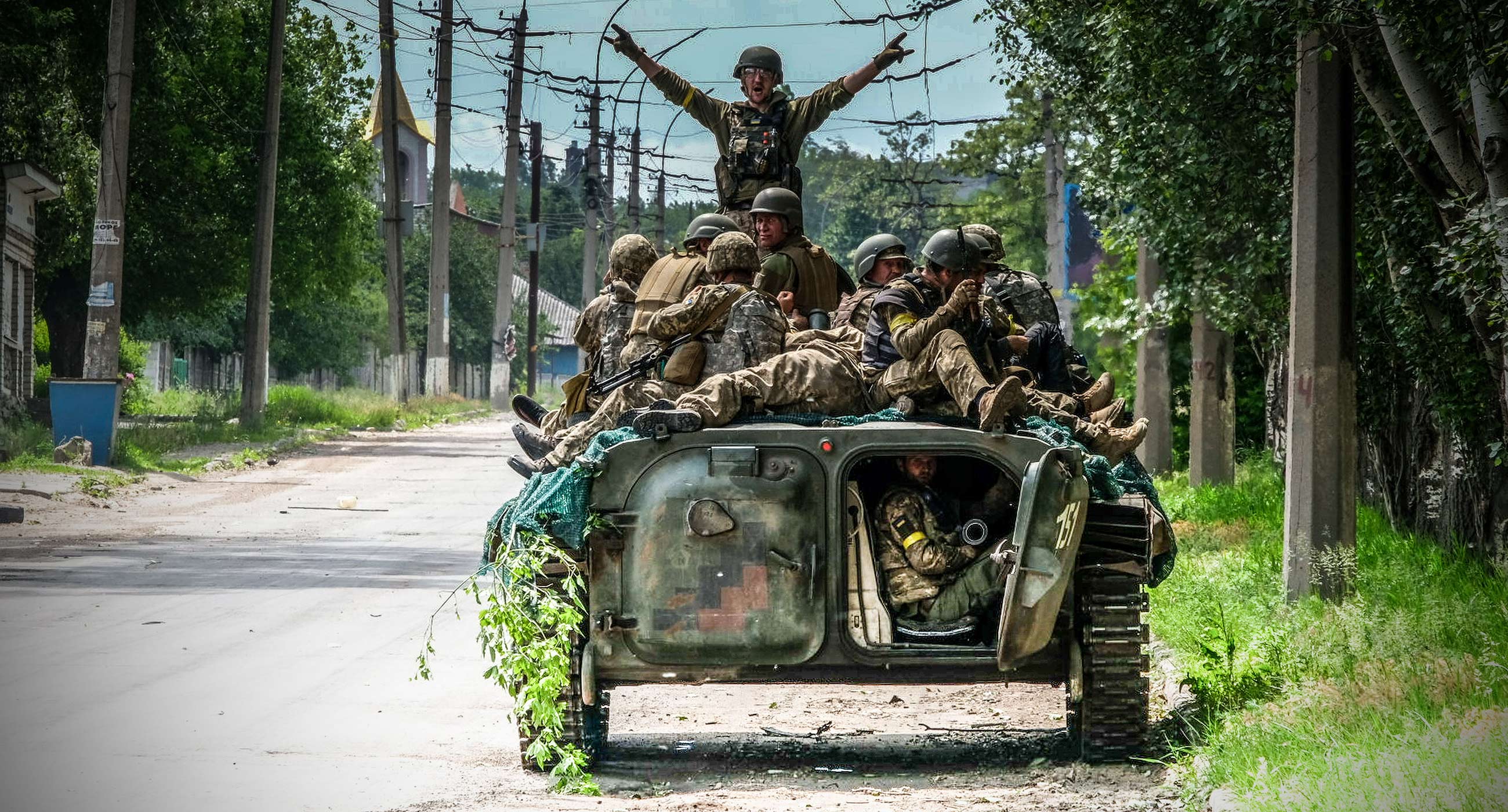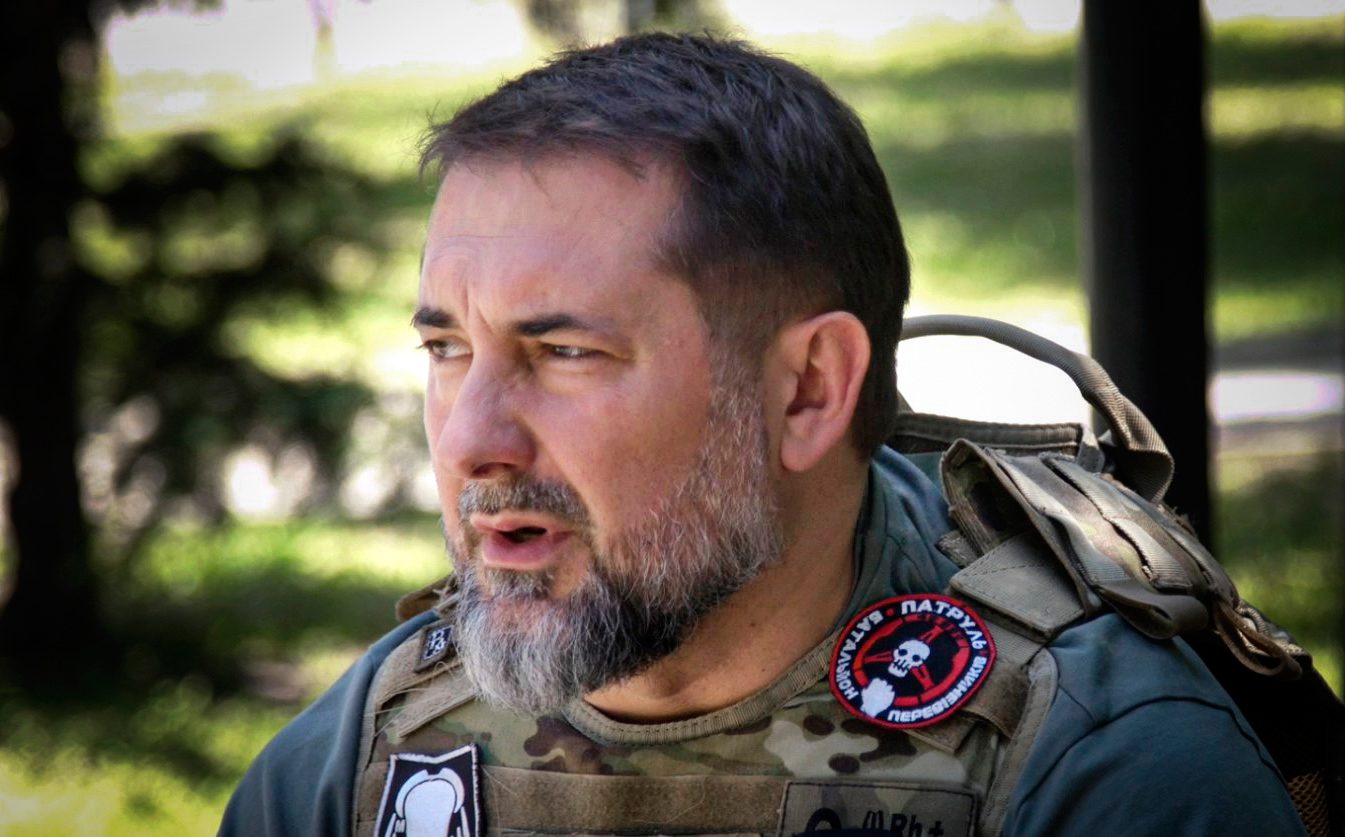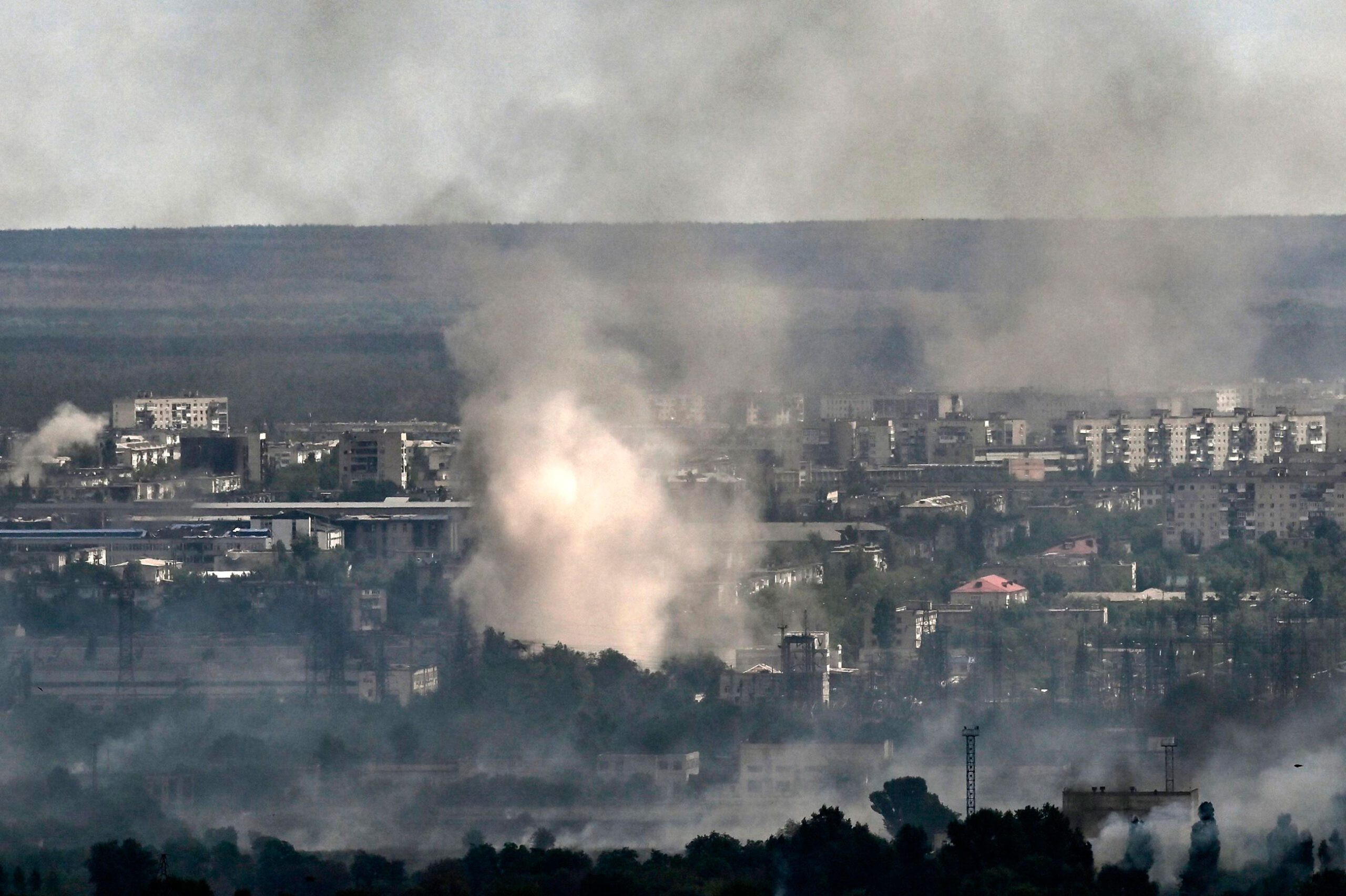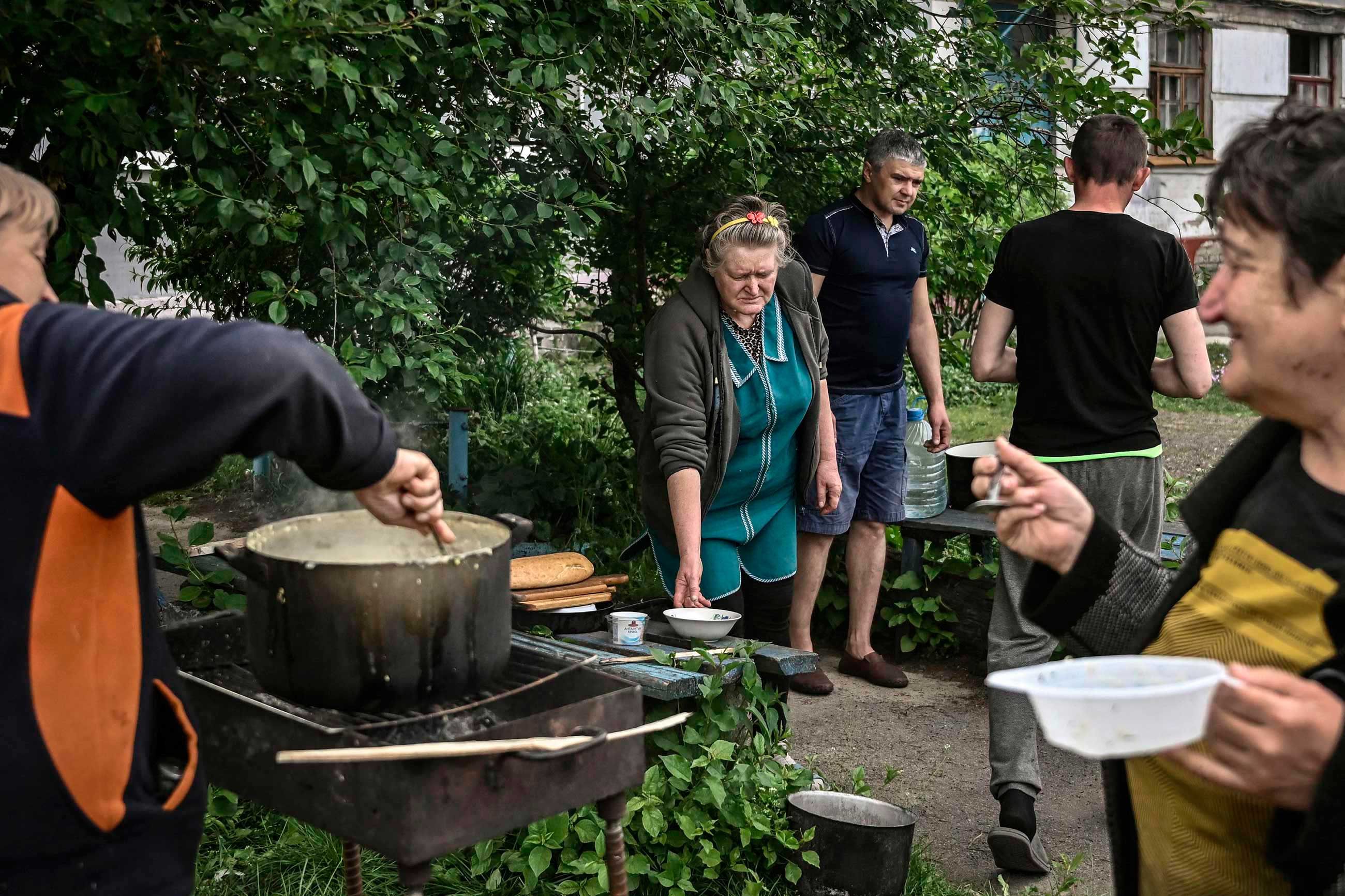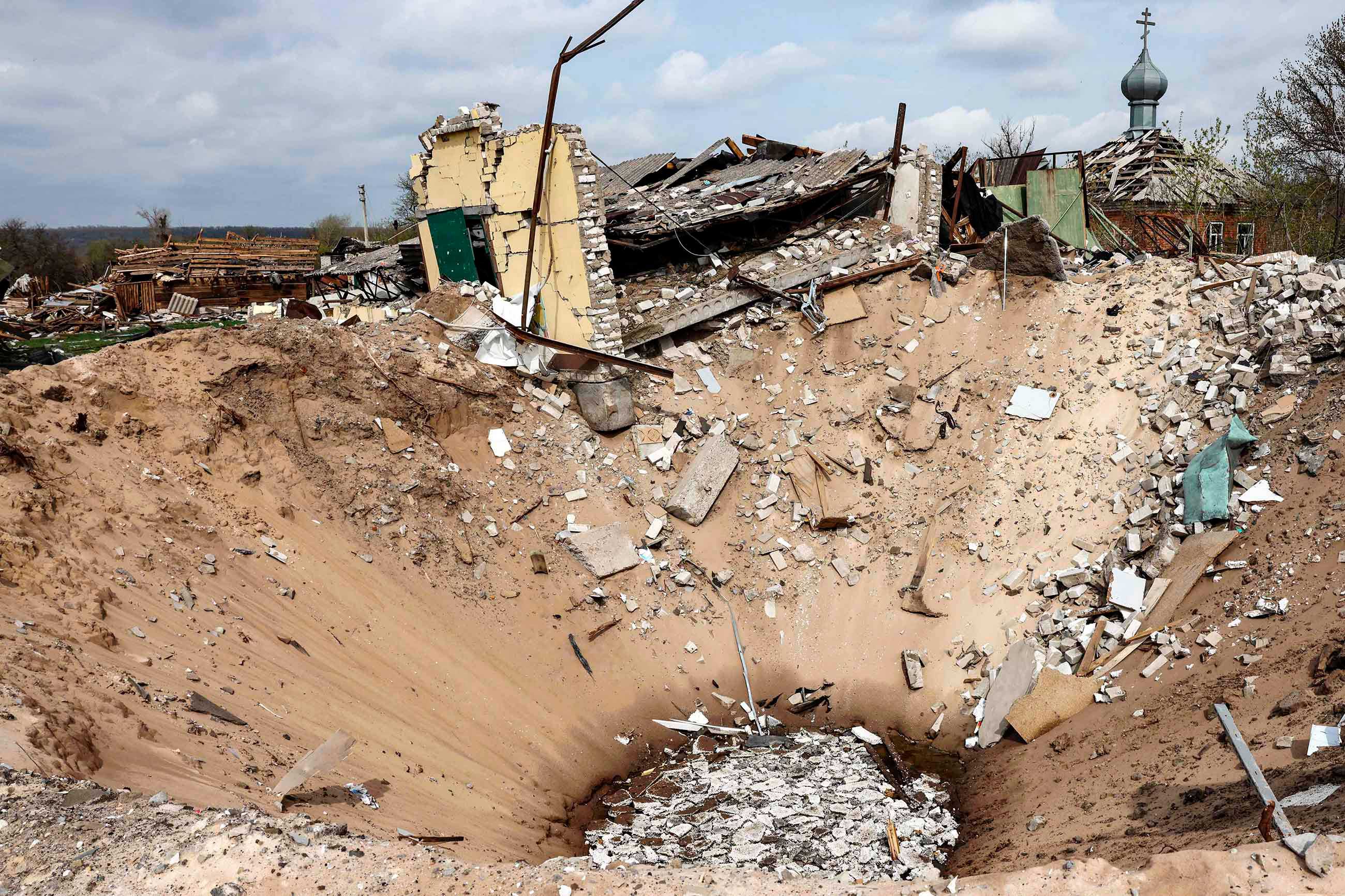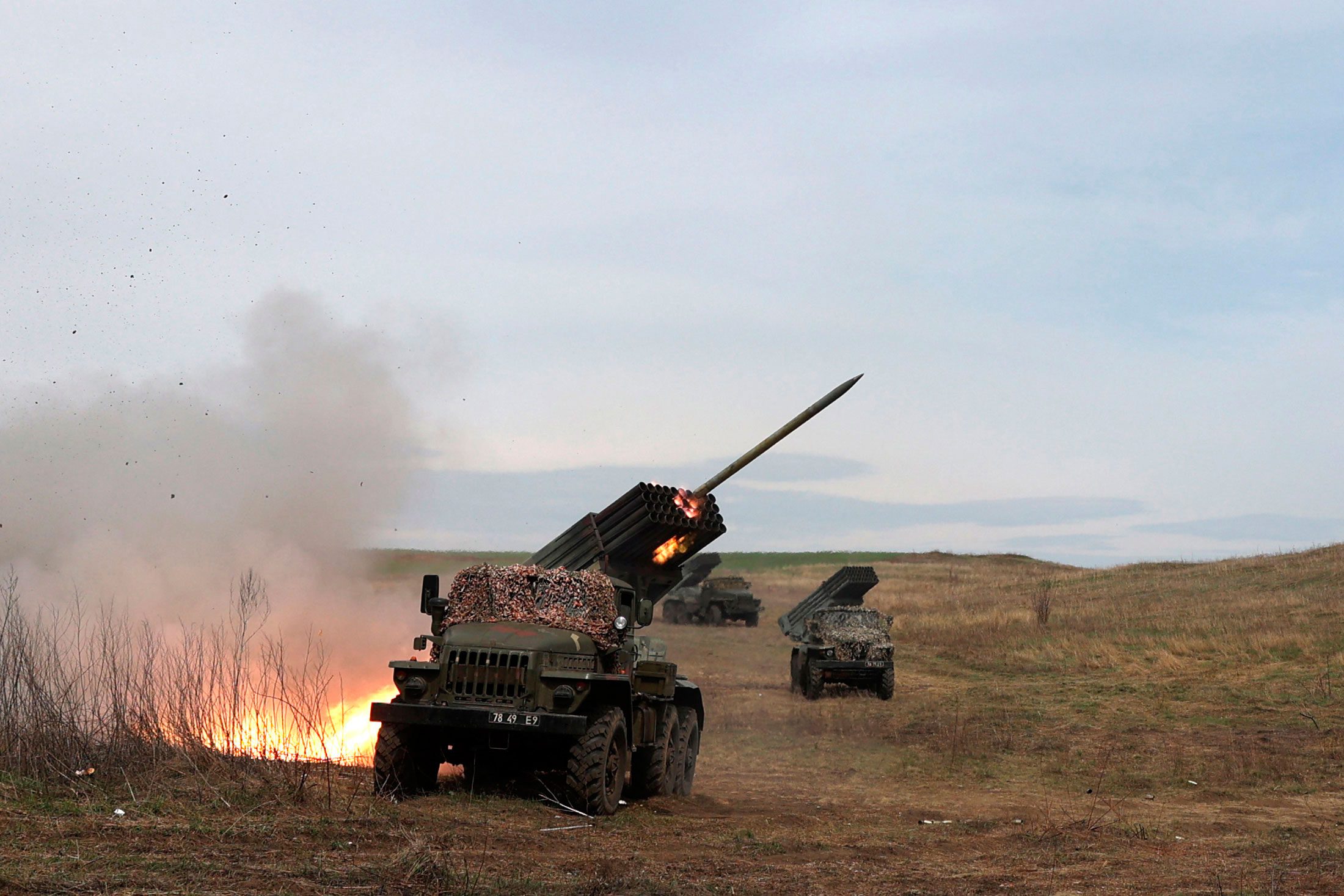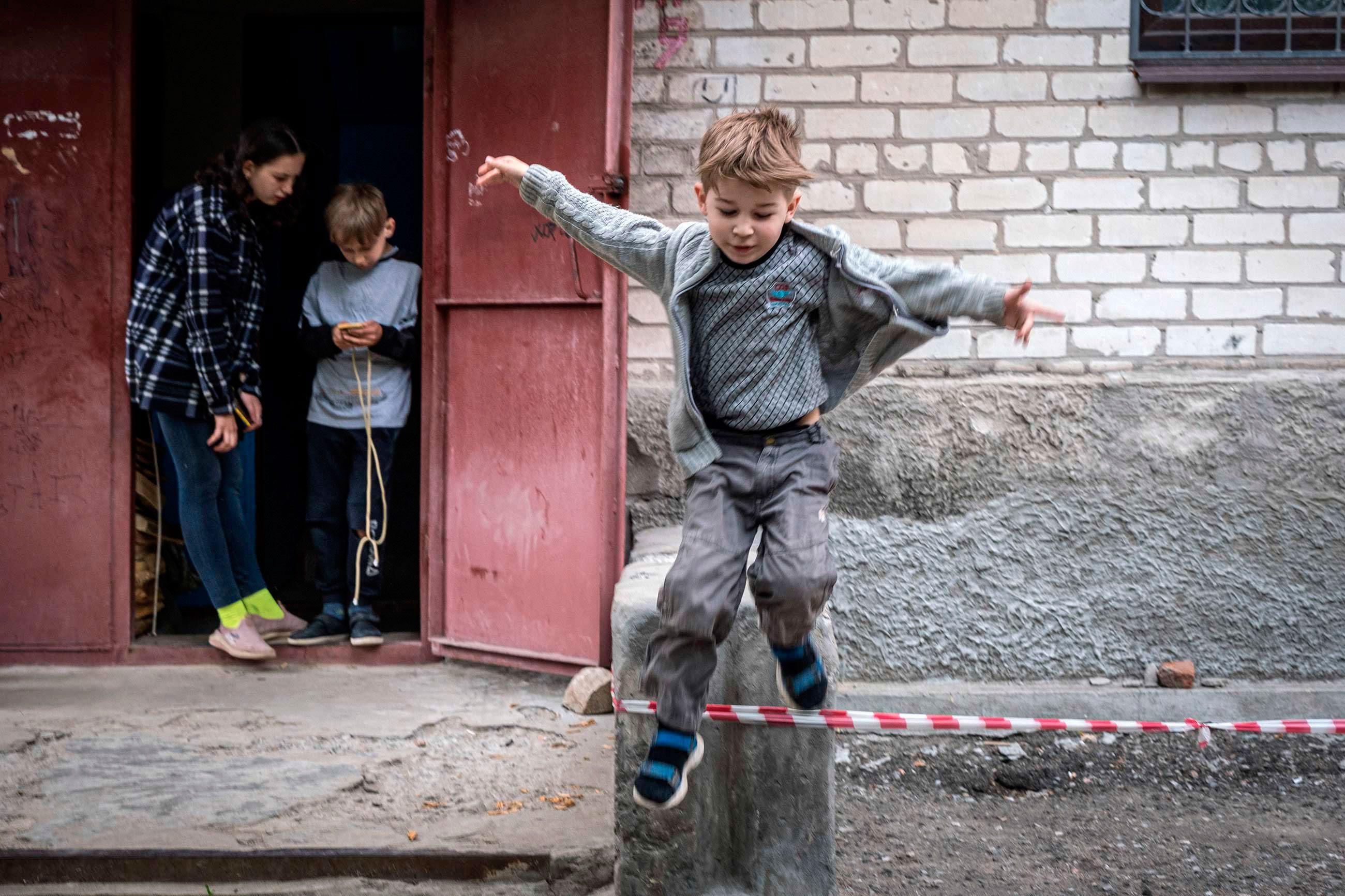Support Zaborona at this difficult time so that we can continue to inform you and tell important stories.
Since the beginning of Russia’s full-scale invasion of Ukraine, most of the Luhansk region has been captured by the Russian army. According to official figures, the Ukrainian military currently controls only 10% of the territory. Fierce fighting is going on throughout the Luhansk region, and the main forces are concentrated in Severodonetsk. Every day the occupiers destroy the city and try to break closer to neighboring Lysychansk, and the Ukrainian military repulses artillery attacks.
Kateryna Serhatskova, editor-in-chief of Zaborona, met with the head of the Luhansk region’s military administration Serhiy Haidai to discuss the protection of the Luhansk region and how the West should help Ukraine defeat the Russian occupiers.
Now many people say that the Armed Forces control 20% of Severodonetsk, you say this part is bigger. What is the situation and why is it changing?
We can talk about percentages here and now. Unfortunately, the situation is changing quite dynamically. Our only problem is the lack of long-range artillery. If there were enough such weapons and ammunition for it, we would push back enemy artillery. And I can guarantee that our military would clean up the town completely in two days. And what is happening now: our people clean it up in half a day, and then the Russian artillery starts working – and they break houses into rubbish, completely.
Most of the town is now controlled by the Russian army, but not 80%. There was a situation when half of the town was recaptured by our military, but then they left because [the Russians] started shooting the town from every weapon they had. Now the percentage is maybe 70 to 30. Their only goal is to capture the territory, not the town as such. And on the territory, there may be just the remains of houses left. People and infrastructure are not important to them.

Serhiy Haidai. Photo: Zaborona
Why should they capture exactly this territory?
If we talk about Severodonetsk, it is a very motivational component for soldiers – both for ours and for the enemy – because after 2014 it is a regional center. In strategic military terms, Severodonetsk is nothing, because Lysychansk is situated close, but much higher and much easier to defend. But Severodonetsk, as well as every village or town, is important. When people say: ‘Now, Severodonetsk has been surrendered’ – but no town is surrendering at all. People should talk to the military, who have been fighting for three or four months. When they hear that some town has been surrendered… This is nonsense; it hurts them even to listen. Yes, they retreat sometimes, but these are tactical retreats and regrouping so that the enemy can be further confronted.
Talking about artillery and aircraft. We often hear, especially from the West, that if they provide heavy equipment to Ukraine, it will worsen the situation [for example, Germany fears that providing weapons to Ukraine will “provoke” Putin to attack other countries]. As a person who is constantly in this situation, what would you say to those politicians? Why is this wrong?
First of all, I am very annoyed by these European statements. Their tolerance has led to the fact that Ukraine is currently at war. It is their fault that there was no response. The thug will not stop if he comes into the yard and sees the children walking around. Now it looks like this: one child is insulted, but the parents of others say: “This is not nice, this is not good, but it is not our child, it is someone else’s child, someone else’s. So we will express our concern.”
You shouldn’t express concern – you have to either call the police or kick the thug’s ass yourself. Then the thug will understand that he shouldn’t do that because there will be “revenge” and it will come very quickly. But if he realizes that he insulted the child today and he was not punished for it, tomorrow he takes the mobile phone – and nothing happens to him, the day after tomorrow he takes the pocket money, and then he can beat the child, maybe break something, and maybe even kill him. The French people, Macron offered: give up part of the territory and there will be peace. No questions: give up Marseilles, and let there be peace. I’m ok with it, why not? We will be very concerned about what is happening in Marseilles. Why does someone decide for us about our territories?
Second, the leaders of some countries still do not understand that Putin will stop where he will be stopped. And if he is not stopped, today it will be Ukraine that suffers, and tomorrow – other countries. He will go to Europe. His appetites are boundless, and the Russian nation is zombied by propaganda. It’s much easier for them to think how cool they are than to look to the right, to the left, and see that they’re making cars that can’t stand criticism, that they can’t design a computer or an air conditioner. They even stole money from their army, thank God. We will later place a monument to Shoigu in the center. Lots of money initially directed to buy army equipment they transferred to buy villas and yachts – that’s cool.

Smoke from the shelling in Severodonetsk during the fighting between Ukrainian and Russian troops in Donbas, June 7, 2022. Photo: ARIS MESSINIS / AFP via Getty Images
Severodonetsk is your hometown. When it was captured in 2014, were you there? Do you remember how it happened?
I was not there at that time, I was in Kyiv. In 2015, I was appointed head of the Mukachevo administration, and I worked in Zakarpattia. I didn’t see what was happening, and I didn’t feel it, but I was talking to people who had lived there all this time. By the way, this did not help the situation now, after a full-scale invasion. Some people thought that we would have the same as in 2014. And when authorities said that now the situation is different, please evacuate – a certain percentage remained in place. But we did our work well: 120,000 people lived in Severodonetsk, now 15% remain. Many people were evacuated with the help of volunteers, local administrations, and international partners.
How were they evacuated?
Quietly. Without advertising for Russia, we have a humanitarian corridor. We agreed on humanitarian corridors several times and each time the shelling took place. We talked about evacuation every day from all the sites, and drove through shelters – volunteers and religious organizations worked there. Evacuation buses were parked each time in the same place, and they were escorted by police.
At first, it was much easier because the railway stations were working. We evacuated people from Rubizhne, Lysychansk, and Popasna. Then the enemy started shelling railway tracks and stations. It was necessary to go already to the Donetsk region and to leave further. There were situations when the train was fired upon, the conductor was killed, another one was injured, and after that, the drivers refused to go. Then my deputy sat down near the driver, and this way they left. To some of them, we even paid money to give some motivation. Thanks to Ukrzaliznytsia, we evacuated tens of thousands of people. Everyone helped us: from the regional [leader] to the chairman of the board.

Жителі Лисичанська готують їжу у дворі свого будинку, оскільки в місті немає електрики та води, 26 травня 2022 року. Фото: ARIS MESSINIS / AFP via Getty Images
When did the situation become critical for the Luhansk region?
Immediately. In the first days, the Ukrainian military left 70% of the territory. The fact is that we had an invasion not only from the occupied territory, the so-called LNR but also from Russian territory. They left with heavy equipment.
Did they leave Milove?
Yes. The Luhansk region is protected by the Armed Forces of Ukraine, the National Guard, border guards, police, and the Security Service of Ukraine. If we had made a line of defense from conditional Popasna to Milove, across the entire region, in order to hold the entire line of defense, it would have been broken long ago and our troops would probably fall into an operational encirclement. Let’s talk about the facts: the war has been going on for four months, but they have not gone through the Luhansk region. Therefore, the decision to build a line of defense from Kreminna to Rubizhne, Severodonetsk, Lysychansk, Zolote, Hirske, and Popasna was correct.
Although it hurts me. In the Donetsk region, [Ukrainian military] did not leave the territory. Just as Mariupol held back a huge number of Russian troops, so did Severodonetsk. But the fate of the city is very tragic. It is simply destroyed. They have this tactic: destroy everything, people are not needed, infrastructure is not needed, houses are not needed, you just need to destroy everything. All the critical infrastructure – gas, water, and electricity – is 100% destroyed in the Luhansk region.
Why are the Russians destroying those cities that they cannot take?
To just walk through the territory. Inhumans! Why do we call them orcs? The notion of orcs that we now address to them did not appear on the day they attacked, but after we realized what they were doing: when it became clear that they torture people, and destroy hospitals, kindergartens, and schools. Even the food warehouses were destroyed – where there was no military at all. Humanitarian headquarters were destroyed.
The last example is from Lysychansk: there was no military equipment, no cannons were standing nearby, and there was no military in the shelters. This headquarter was exclusively engaged in the distribution of humanitarian kits, light medical treatment, and drinking water. Why was it destroyed? Thirty-two shell strikes. This is a tactic of scorched earth so that there is nothing to cling to and there is nothing to defend – so they can get through easily.

Crater and destroyed house in the village of Yatskivka in eastern Ukraine, April 16, 2022. Photo: RONALDO SCHEMIDT / AFP via Getty Images
What did your hometown look like last time?
It was shot. Ruined. It’s personal. I try to hide all my emotions deep inside because after all, I am the head of the regional administration. If at least one city in the Luhansk region resists, I am responsible for the people who remain there, and I will help the military with what they need so that they can defend the Luhansk region.
What is already known about the dead?
It is impossible to say in general, it is unreal. Many people were buried right near the porches. The hit of heavy artillery tears people to pieces: there is a hand, there is a head, and here is half of the torso. So they lie like this for a day, three, or four days. And it is impossible to take them away. Sometimes neighbors go out to bury bodies, and here a new shelling already kills them. After the victory, when the de-occupation of the Luhansk region will take place when we will count the number of dead – I’m not even talking about the military, but civilians – it will be a huge, horrible number.
What will happen if the Russians take over the Luhansk region?
This will not be the end of the war. The war will continue anyway. We will continue to stop them. I hope we can continue to push them back. No matter how painful it is, life does not end there. We need to work not only on the reconstruction of Ukraine after the invasion but also on strengthening it militarily and economically.
We have shown the whole world that we can hold back that vaunted army and repel it strongly enough. But we must not forget that the military budgets of Russia and Ukraine are heaven and earth. We have 40 million people, they have 140 million. The number of equipment left over from Soviet times is tens of thousands. Even [if] it is outdated and needs modernization, they just left it. There are a lot of artillery and shells, that’s why [the Russians] destroy everything. It is difficult to fight this enemy – but not because it is strong, but because it is long.
Let’s list: what do we need from Western partners?
We need long-range weapons and unlimited ammunition. And we need the sky closed. Let them not close it themselves, but give us weapons, we will close. Give us Patriot systems, S-300s, and hand-held Stingers, give us a tool to cover our skies.

Ukrainian BM-21 Grad rocket-propelled grenade launcher fires on the positions of Russian troops near Luhansk in Donbas, April 10, 2022. Photo: ANATOLII STEPANOV / AFP via Getty Images
Do Russians surrender?
They surrender, or they don’t surrender – but they are being taken captive. We captured Kadyrovites, and freshly mobilized soldiers, as well as the LNR military. This is a war. All Russian propaganda is complete nonsense. When do they say that we have 200,000 dead – why not 20 million? When we show: here are your corpses, take them away, please, they are already decomposing. And they don’t need it. If they publish and acknowledge the tens of thousands of dead – this is [firstly], demotivation for the military, secondly, internal outrage inside the country, and thirdly – payments, several million. And if the body is not taken away, there are no payments. They are pragmatic in this regard. And here is what we have – look at how our soldiers are buried in the villages. People come out, cry, and kneel. And their soldiers are buried like dogs.
You told me that you communicate with Russians from time to time. Tell us how it happens?
It happens on social networks, we don’t phone each other. No, they’re trying to call me. A standard story: they say to surrender the region. They go to f**k themselves right away. I block all the phone numbers.
It’s they who need to be demilitarized. They threaten the whole world, and the world, unfortunately, behaves like a diplomat, a nerd compared to thugs – it shouldn’t be like that. We have all seen what this leads to.
Zelensky showed himself 100% reliable in terms of protection. He remained [in the country], does not argue, which is now popular on the Internet to do, but clearly focuses on several things: help within the country and certain pressure or exhortation to Western partners to supply the necessary weapons. I imagine how he feels listening to Macron’s nonsense, seeing how the Germans slow down arms supplies. Sometimes you really want, like Khrushchev, to take off your shoe and knock on the podium: “I’ll show you Kuzkin’s mother!” But he holds on. Here he came to us in Lysychansk and met with soldiers. This, by the way, is very motivating for the fighters. They understand that they were not abandoned.
And what motivates you?
This is simply the responsibility. I could leave – my mother is Italian, and she has citizenship. I worked for two years in the most difficult region of Ukraine, because it was underfunded all the time that an independent Ukraine existed. Everyone who headed [Luhansk region] until 2014, stole funds from it. This was hard, but it worked. And another important factor is that for two and a half years people believed me. How can I betray them?

A child is playing near a bomb shelter in Lysychansk, on May 28, 2022. Photo: Alex Chan Tsz Yuk / SOPA Images / LightRocket via Getty Images

